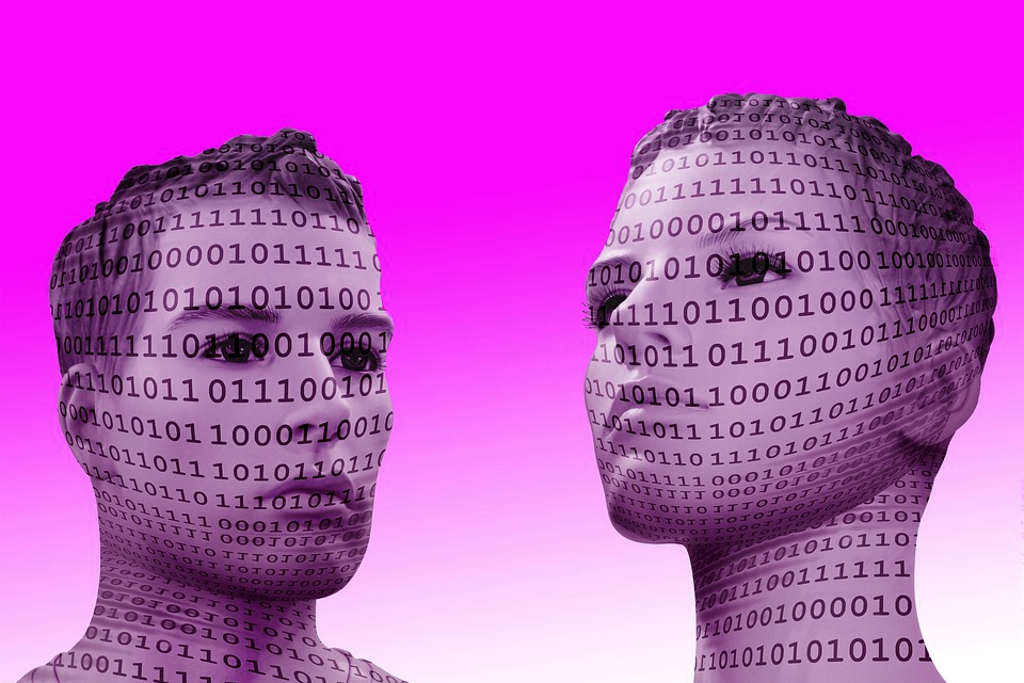Should You Be Worried About The Government’s Huge New Facial Recognition Database?
How much do you trust the government?

Remember when Apple announced they were implementing facial recognition into the latest iteration of the iPhone, the iPhone X? And people said it was kind of weird and creepy to hand over a 3D blueprint of your face to one of the world’s biggest tech companies, especially since it would end up normalising the use of facial recognition in a bunch of other scenarios, like government surveillance?
Turns out those people were right.
Today all Australian federal and state governments unanimously agreed to establish a “national facial biometric matching capability”. Basically they want to give security agencies access to facial recognition technology and a giant database of everyone’s headshot for them to cross-reference. The plan is to have the technology up and running by the time the Commonwealth Games kick off next year, but there’s still a lot of unanswered questions about how it will operate and what impact it could have on privacy and civil liberties.
What Exactly Is The Government Trying To Do?
Today the Prime Minister and all state and territory premiers and chief ministers gathered in Canberra for a special Council of Australian Governments (COAG) meeting on counter-terrorism. After the meeting, the country’s political leaders released a document called the “Intergovernmental Agreement On Identity Matching Services”.
The document outlines how different governments will work together for a national facial recognition database designed to “prevent identity crime, support law enforcement, uphold national security, promote road safety, enhance community safety and improve service delivery”, all while “maintaining robust privacy and security safeguards”. Sounds ambitious.
The federal government already has a facial recognition system called the “National Facial Biometric Matching Capability” (spooky name tbh), but it only has access to passport photos. As a result of today’s agreement the federal government will now have a database made up of every drivers license photo in the country. State and federal security agencies will be able to use that database when running facial recognition software.
.@MichaelKeenanMP: These security changes will 'bring security into the 21st century.' #auspol MORE: https://t.co/21oEdeE6QQ pic.twitter.com/34wpqRvIsG
— Sky News Australia (@SkyNewsAust) October 5, 2017
“This is not accessing information, photo ID information that is not currently available,” Prime Minister Malcolm Turnbull said. “We are talking about bringing together essentially federal government photo IDs, passports, visas and so forth, together with drivers’ licences.
“These are all available to law enforcement agencies now and have been for many years, if not for generations. What we have not been doing is accessing them in a modern 21st century way. It shouldn’t take seven days to be able to verify someone’s identity or seek to match a photograph of somebody that is a person of interest. It should be able to be done seamlessly in real time.”
Despite the PM’s reassurances, and the fact that this new system has unanimous support from all state and territory leaders, civil liberties advocates still have concerns.
Why Are People Concerned?
Digital Rights Watch is an Australian organisation that was established last year to help protect the digital rights of citizens. According to the organisation’s chair, Tim Singleton Norton, the new national facial recognition database is “a gross overreach into the privacy of everyday Australian citizens”.
“There is a severe lack of strong oversight mechanisms and general enforcement for human rights and civil liberties in this country, which results in the public being understandably wary about giving government more powers in the first place,” he said.
Singleton Norton pointed to recent data breaches from the Australian Federal Police and the Department of Immigration and Border Protection as evidence that the government was “ill-equipped to properly protect citizen’s data”.
“When individuals enter into an agreement with a government agency that includes their personal information, they should have the right to understand, be informed and have a say in where that information is held and what it’s being used for,” he said.
“Whilst we of course must ensure that our law enforcement agencies have the tools necessary to undertake their important work, this should not come at the expense of citizens’ rights to privacy.”
The new system has also been criticised by the NSW Council for Civil Liberties. Their president, Stephen Blanks, said the proposal could undermine trust in government.
“It is quite alarming when information you have given to government for one purpose is then used for an entirely different purpose,” he said.
So… Is This New System Good Or Bad?
Whether you think the new facial recognition database is a good idea or not really comes down to how much you trust the government and various security agencies. Having a huge amount of personal information in one big database can make the job of law enforcement easier, but it also increases the risk of data being accessed unlawfully or hacked.
The government has promised to protect the privacy of citizens, but it’s not really clear yet how that will work. On the other hand, the COAG agreement states that the government will give certain private sector companies access to the database, significantly widening the scope of who can access your personal information and a digital rendering of your precious face.
Even if you support our security agencies having better access to this kind of data, at the very least we should be having a very public, very thorough debate about how exactly the system will work, who will be able to tap into it, and what kind of privacy safeguards are in place.
At the moment we’ve got an arbitrary deadline of getting the system up and running in time for the Commonwealth Games, and an alliance of politicians agreeing to the rules behind closed doors. And the iPhone X hasn’t even been released yet!
—
Osman Faruqi is Junkee’s News and Politics Editor. He tweets @oz_f.